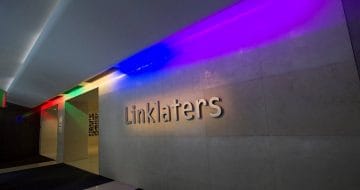After a quarter of a century of pulling rabbits out of the hat, the elite quintet is facing arguably its toughest test yet

Magic circle marketing teams owe legal journalists some debt of gratitude.
In the late 1990s, The Lawyer christened the then five leading British law firms with that epithet which still distinguishes them today. Although they may not like to admit it (some members have been known to shirk the term ‘Magic Circle’), Allen & Overy, Clifford Chance, Freshfields Bruckhaus Deringer, Linklaters and Slaughter and May still instantly stand out to prospective graduates as well as competitor firms looking for a good lateral hire.
At the time when the term was first popularised, it made a lot of sense. Out of the demise of the ‘Club of Nine’, which represented a pact of sorts between the then nine leading British firms, the five Magic Circle firms had clearly distinguished themselves from the other four (Lovells, Norton Rose, Herbert Smith and Stephenson Harwood). But a lot has changed since then, as will be most apparent to younger readers who only recognise the non-MC Club of Nine members in their newly merged forms (Hogan Lovells, Norton Rose Fulbright and Herbert Smith Freehills).
So, has the Magic Circle lost its magic? Such a question implies that these five firms have something that makes them stand out. So our line of inquiry will consider what is ‘magic’ about them and not other firms.
There is one feature that still quantifiably sets these firms apart: their Chambers and Partners rankings for corporate and finance work in London. From big-ticket borrowers and lenders in banking and finance to corporate M&A, litigation, R&I and tax, these firms are omnipresent in the top two bands, occasionally joined by US rivals and the likes of Herbert Smith Freehills (HSF) and Hogan Lovells in certain areas of expertise. From these rankings, the Magic Circle still appear to hold the City legal market under their magic spell. But is this the whole story? Has significant change in fact already taken place?
Flicking through the different filters on The Legal Cheek Firms Most List tells a more complex story that makes the MC far less distinct for both graduates and more senior lawyers. The Magic Circle used to really stand out to graduates for several reasons. The five firms used to have the largest trainee intakes, best NQ salaries on offer by British firms and a strong reputation for excellent training.
Now, CMS is joint second with Clifford Chance in terms of trainee numbers (both offering around 95 places) and NQ salaries have recently been reshuffling. CC and Freshfields offer £125k, whilst Slaughters provides £115k. Linklaters and A&O is currently stick with a more conservative (but still pretty solid rate) of £107.5k, on par with former Club of Nine member Hogan Lovells. In the meantime, Herbert Smith Freehills have distinguished themselves with an NQ salary rise to £120k.
As for future lawyers’ training, the Magic Circle are split with the City Consortium — made up of three Magic Circle firms Freshfields, Slaughter and May and Linklaters reunited alongside former Club of Nine members HSF, Hogan Lovells and Norton Rose Fulbright — decisively moving in favour of the SQE later this year, while Clifford Chance and A&O will transition to the new pathway in 2023 and 2024, respectively. Differing levels of maintenance grants also seem divided on arbitrary lines with HSF and Hogan Lovells frequently equalling the MC, though the City Consortium has been getting ahead by offering some sizeable sums. This may all change in accordance with the economic environment, but the Magic Circle currently do not distinguish themselves to graduates as the five standout British law firms on these factors.
Nor is profit per equity partner (PEP) a clear qualifying factor for membership of the elite group for more senior lawyers. Excluding US firms, Macfarlanes (£2.09 million) currently best Freshfields (£1.91 million), A&O (£1.95 million), Clifford Chance (£1.85 million) and Linklaters (£1.77 million) on PEP. And nobody knows exactly what Slaughters’ PEP is but estimates put the figure at somewhere between £2 million and £3.1 million. This, if accurate, puts the firm comfortably ahead of its Magic Circle peers.
Admittedly, these are often asterisks on what still portrays a compelling overall message as to the lofty status of the Magic Circle. But some might say the magic is shining less brightly than it used to when compared with other firms’ offerings. Certain MC junior lawyers seem relatively less jubilant than you might expect for firms with such strong reputations for having the best training on offer. “I’m not too sure what the fabled ‘MC’ training is”, one rookie told us. A common feature of the aforementioned ‘MC’ training is more support than US rivals on equally stimulating work. Although very distinct from the ‘throw rookie in at the deep end’ approach adopted by some US outfits, are the likes of HSF and Hogan Lovells so different to the MC in the training department anymore?
Again, unlike their American rivals, the Magic Circle have been pretty hands on in emphasising how they can improve their lawyers’ working lives. From bringing dogs to work to office saunas, swimming pools, massages, all-expenses-paid weekend trips abroad and tickets to the Royal Academy, Cheltenham gold cup and a box at the O2 are all strong sweetners offered by the MC. But in all these areas insiders don’t describe this as something that is necessarily unique to the Magic Circle.
This gets to the crux of the matter — prestige is the most powerful perk.
The term ‘Magic Circle’ is clearly an anachronism, guilty of trying to live in a different age where the City was dominated by elite British firms. In the two decades or so since the term was popularised, attention has shifted from competition between elite British firms to the growing rivalry between US and British firms in London.
This appears to be the new psychology at play. Although a few still boast that their firm is the best in the Magic Circle, most trainees and junior lawyers who spoke to us had a different dilemma on their minds: “There is no longer a distinction from being at a US shop. They’re increasing salaries to compensate [for the working hours], but what they don’t understand is that if people wanted to work at a US firm, they would have applied there (and many are now moving). They’re losing their niche in the market the faster they move to a US model”. Tellingly, junior lawyers are more focused on busting UK/US myths with less mention of the Magic Circle as a distinct comparator.
Is this an identity crisis? What seems to matter the most to MC insiders is that the Magic Circle firms stay as true to their prestige. Beyond their impressively broad Chambers rankings, which in themselves are not entirely a unitary characteristic of the group, it is getting harder to pin down on paper what these firms uniquely offer compared to some of their rivals. Whilst the Magic Circle is still the first port of call for ambitious students and lawyers, it remains to be seen whether the five can continue to keep these groups spellbound.
City insider has keen interest in all things City law.


